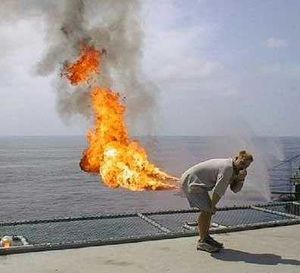UnNews:EU tells consumers, do more to cut carbon dioxide emissions
| This article is part of UnNews, your source for up-to-the-picosecond misinformation. |
1 September 2006
| UnNews Audio (file info) | |
| Listen to this story! |

UNNEWS Newsroom — The European Union warned consumers Tuesday that it will introduce legislation to enforce the increased consumption of its vegetables, if the industry does not work harder to meet voluntary veggie-eating targets.
The European Commission welcomed figures showing that European, Japanese and Korean producers had reduced veggie waste by an average of 12.4 percent from 1995 to 2004.
But it said more brussel sprouts and carrots were needed if the industry was to meet the voluntary targets of a 25 percent cut in cupcakes by 2008 for the Europeans and 2009 for the Asian manufacturers.
"The situation is not satisfactory, we are getting goddamn fat like the Americans" said EU Industry Commissioner Guenter Verheugen. "We expect that the industry sticks to its commitments and cut the icky juicy fat."
Cuts in potato chips are a key part of the EU's strategy for cutting so-called greenhouse gases under the Kyoto Protocol on global warming. "Yes, we figure fewer fat people, less farting."
To meet its targets, the industry will need to introduce cuts of meat of less than 10 percent fat from now on, the European Commission said.
Verheugen's spokesman said the European Commission would impose sanctions on meat processing companies if they don't make more progress under the voluntary code.
"The European Commission will not hesitate to replace the carrot with the stick," spokesman Gregor Kreuzhuber he told reporters. "The world food industry should be aware that we are watching the situation very closely."
The EU's concerns were compounded by data that shows that although the emissions per calorie have fallen, the overall level of CO2 emissions from animal farting is up by 22 percent since 1990 due to an increase in the number of feed lots and the distances driven to market.
Iran, Israel, and Syria had no immediate reaction to the Commission's comment, but said it would release a statement later Tuesday.
Sources[edit | edit source]
- Pol Kettle "Why do they call it a "green house", anyway?" Cambodia Today, September 1, 2006